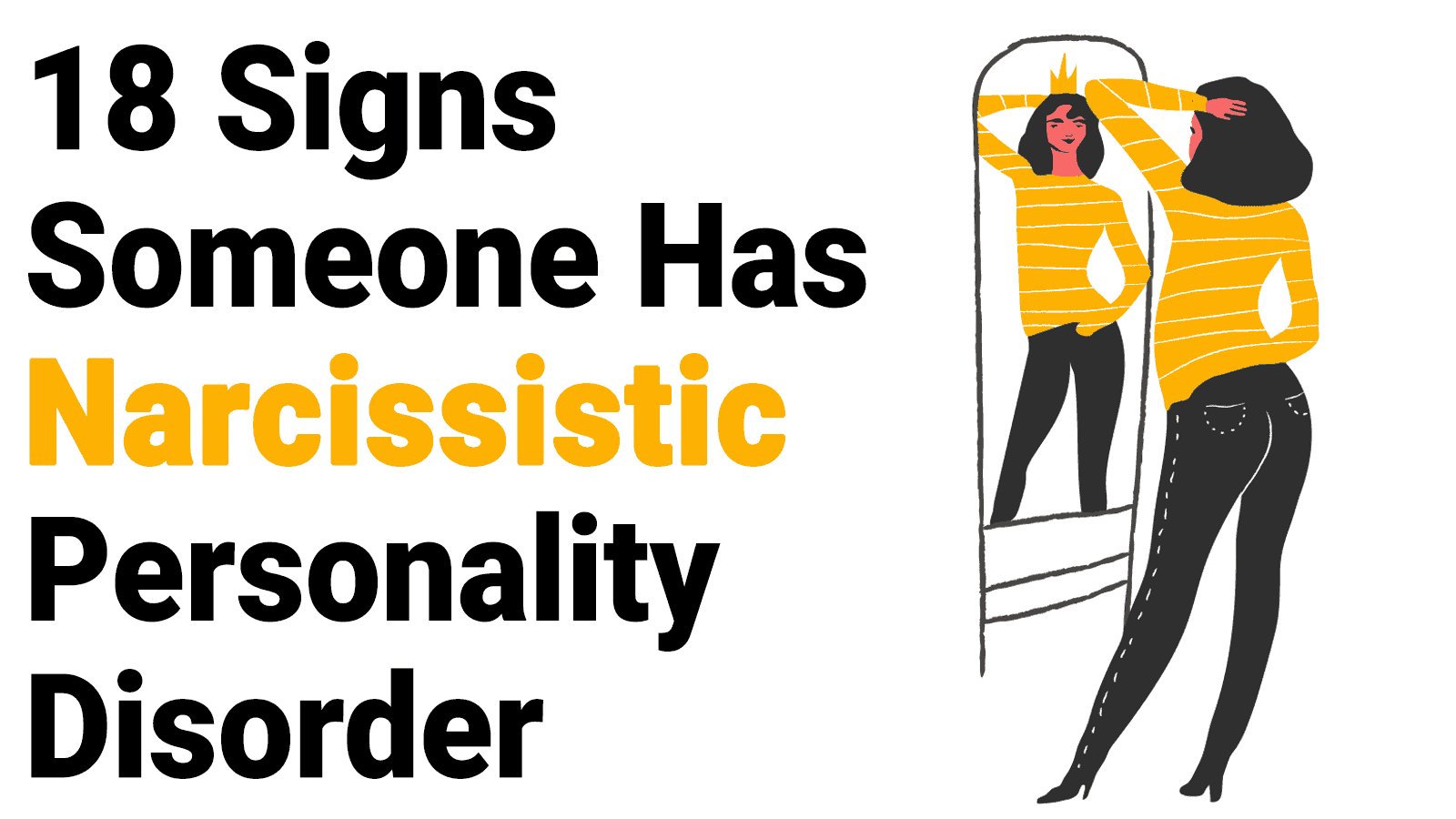At some point in your life, you have probably met a few narcissists. They demand the spotlight and somehow find a way to make everything only about them, no matter what. It’s a frustrating behavior to have to deal with.
But many narcissists aren’t so transparent about what they are doing. They use manipulation tactics in order to get you and everyone else on their side so that they can take center stage. Worse still, the smartest narcissists will make it look like they deserve to be revolved around 24/7, and you may just fall victim to their tactics.
How can you deal with a narcissist, and how can you protect yourself from them and their troubling ways? The answer lies in awareness. You need to be able to recognize toxic behaviors from those around you and identify narcissistic patterns so you can stay far away from them – or, at least, know not to give in to them.
For a narcissist, nothing is more important than ensuring all eyes are on them. You, however, can learn to take your eyes off of their manipulation.
4 Things Narcissists Do Often To Stay At The Center Of Attention

1. Narcissists Are Experts At Playing The Victim
There are many narcissists out there who don’t quite have the ability to empathize with others due to their self-centered nature. But this doesn’t mean that they don’t possess a cognitive understanding of the fact that other people can have a strong sense of empathy. This allows them to take advantage of other people easily.
This is why a narcissist knows how to place themselves in a positive light in every situation, even when they are at fault: by playing the victim. But it isn’t just avoiding the trouble that causes them to play the victim. They want to play the victim all the time, no matter what, and even when it’s not relevant.
A narcissist wants everything to be about them. The second someone else has sympathy, they quickly try to turn the situation around by farming for pity. They portray themselves as martyrs through manipulation, generating a wave of sympathy that they simply do not deserve.
It’s a deceitful tactic, but it’s also a classic and sadly very common one that many people use, not just narcissists. The saddest part is that by taking the center of attention, a narcissist is directing that attention away from the person who really, truly needs it. It can damage lives and rob someone of the assistance they need.
But how can you deal with something like this when it happens?
After all, many experts believe that narcissists do not experience feelings of guilt, but instead feel shame. But that’s actually something you can take into account when you fight against a narcissist.
- Don’t get angry when a narcissist plays the victim.
- Focus on aspects like disappointment, community, and shame.
- If you are in a position to do so, don’t react negatively; instead, imply that other people may think badly of them.
- A narcissist doesn’t always think of the feelings of others, so you reminding them that this may happen can be a wake-up call – or at least a deterrent.
You can also turn this into something positive. Instead of using direct encouragement, ask questions or start conversations that hold suggestions of ways they can gain the attention they crave in a positive way. Remember to frame them as casual questions, not suggestions, as narcissists are more likely to follow through when they believe they are the ones who came up with a certain idea.
2. Twisting Situations Through Reverse Projection
This works somewhat similarly to playing the victim, but often with even worse results. A narcissist knows how to use manipulation to get what they want, uplifting themselves in a positive light while bringing others down.
While this seems like a mild annoyance at worst, keep in mind that this means a narcissist knows the easiest and quickest way to rise to the top is by stepping on everyone else, including you. And they’re very good at it because of how well they can shift a conversation to suit their whims.
A narcissist is capable of taking a situation and turning it on its head. They can perform an intricate routine where they, the wrongdoers, look innocent while you, the victim, look like the bad guy. And if you’re not a master manipulator yourself – which we hope you aren’t – you may have trouble getting out of that spot.
What to do about it
How can you deal with someone twisting everything to make themselves look good – or worse, make others look bad? Many narcissists enjoy seeing other people suffer from the pain they inflict through manipulation. So practice positive thinking and smile. Don’t let them see that they have annoyed you.
- It’s kind of like playground teasing.
- If you react negatively to it, bullies laugh and enjoy themselves and do it more.
- But if you act nonchalant and unaffected, they are likely to lose interest in you.
- So if you keep smiling, a narcissist will eventually get bored of trying to get to you.
It’s even better if you can maintain a positive sense of humor about it. Sure, ignoring a narcissist works, but you can also show that you call your bluff while laughing. If you’re good at tactful humor, you can lightheartedly call out the inappropriate nature of a narcissist’s actions without being mean. Pass it off as a joke, and certain types of narcissists may actually find this funny – or they’ll just know you are not to be messed with.
3. Narcissists Always Play The Blame Game
Narcissists want to look good all the time. So the second they receive even the slightest criticism, all sense of positive thinking goes out the window. They crumble, lash out, and become highly defensive – and this often involves shifting blame around.
The strangest part is that a lot of times, a narcissist may not even be getting any blame in a situation. But if they even perceive that they may be on the receiving end of some flack, you can be sure they’ll find a way to make someone else take the fall. Due to how sensitive they are, this can happen a lot, even when they’re not the target of anything.
- Even if a narcissist does something so horrible it’s impossible to justify, they’ll make sure someone else shares their blame.
- They’ll say someone else did something that made them act that way.
- They’ll blame other people for their problems.
- They might simply switch the topic and talk about something sensitive or difficult, just to distract you from their wrongs.
Defending yourself in this situation can definitely feel like a lost cause. Often, your valid points will be ignored in favor of their manipulative words. They’ll point their fingers at everyone but themselves, and it’s exhausting to deal with.
In dealing with this situation, you need to understand why many narcissists do such things. They have low self-esteem that demands they try to make themselves feel better through any means, even by shifting blame to others.
Take note of context to figure out what could be causing this insecurity. With some narcissists with insecurity issues, just a little positive reassurance – not too much to inflate their egos and not too little to go unnoticed – can help them shed the shame that is causing them to lash out.
4. Interruption
One of the things narcissists do often to stay at the center of attention is control conversations so they are always the central focus. When you’re talking in a group with them, they will quickly interject and cut in when the conversation shifts to not surround them.
You might attempt to bring the discussion back to the matter at hand, but a narcissist will soon derail that attempt again, often by causing you to go quiet by any means possible. If you don’t let them get to you, they may then go on to consider you a threat to their quest for the spotlight.
During conversations, narcissists also tend not to ask questions. They aren’t interested in emotional or mental investments in other people, so they don’t typically care to know what you think, how you feel, or what’s going on with you.
If a narcissist can’t force a conversation back to them, they may shoot out unwanted advice for things they’re not actually qualified for. They’ll make up stories about why they have the experience to give this advice and insist it is followed, even if they’re making it all up.
How do you manage this? Well, there’s a balance to be struck here, but the most important part is not allowing them to derail your train of thought, your conversations, and your life. Focus on your own goals. Don’t give in to a narcissist’s constant bid for attention.
Where’s the balance?
- There’s nothing wrong with paying a little attention to a narcissist, the same way you would treat anyone else.
- Treat them like you would another normal person.
- Acknowledge feelings, then move on. Reassure, then press forward.
- Don’t let yourself be pushed around, but give them the same acknowledgment you would afford anyone else.
Final Thoughts On Things Narcissists Do Often To Stay At The Center Of Attention
There’s no denying that narcissists are difficult to deal with, but it’s important to understand why they behave this way. A narcissistic personality disorder is a genuine cluster B personality disorder that affects about 1% of the population.
Do note that just because someone has a narcissistic personality disorder, this does not mean that they are inherently bad people. However, many people who have this disorder or are on its spectrum may display these negative traits we talked about, especially if they have not undergone therapy or treatment.
While it is a serious mental health condition often caused by trauma, this does not mean that negative behavior is excusable and poor treatment of others is justifiable. You deserve the knowledge to arm yourself against a toxic, harmful narcissist, and it is not your responsibility to help them find treatment.
If you find yourself having to deal with a narcissist, it is important that you understand and are aware of common behaviors that mean they are trying to take hold of the spotlight. This way, you can react accordingly, keep yourself safe from potential emotional harm, and distance yourself from them if necessary.



















